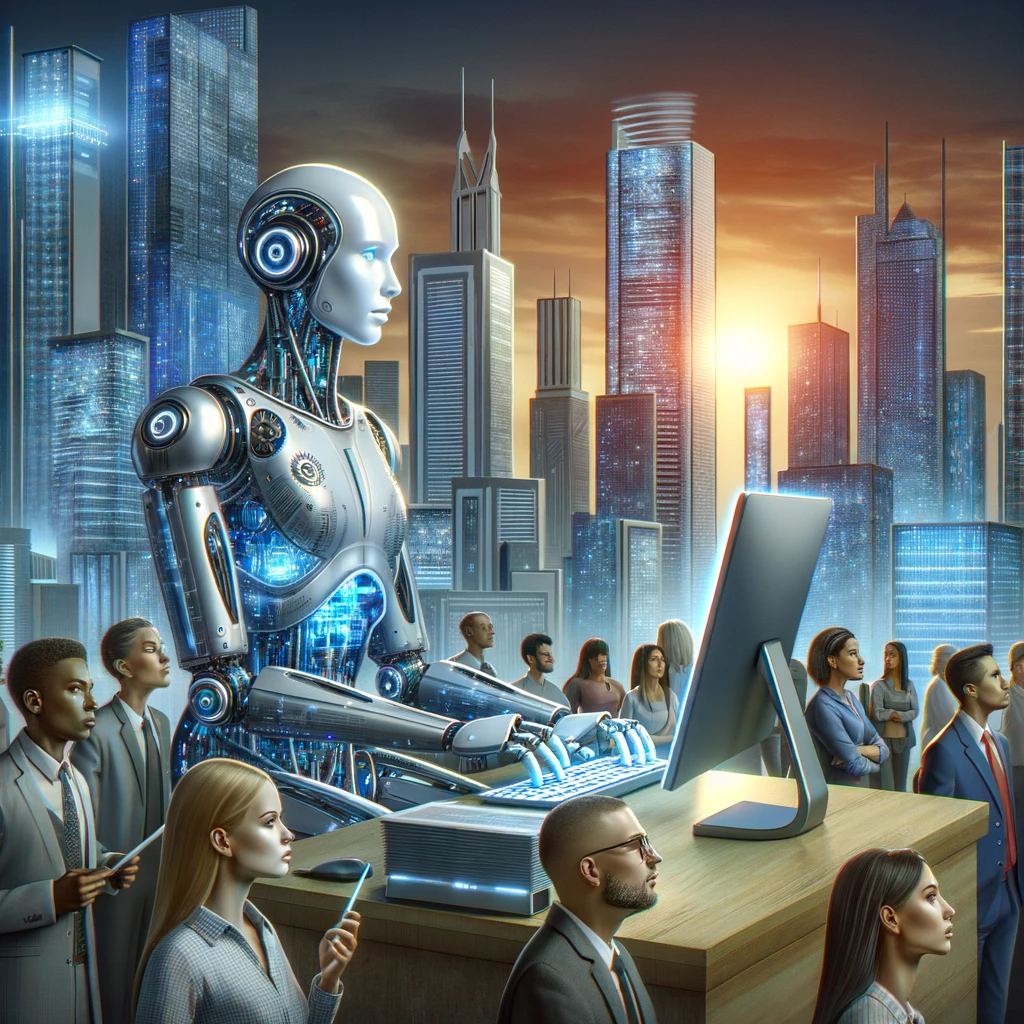A recent survey conducted by six academics from Oxford University, along with institutions in the US and Germany, has raised concerns about the rapid advancement of artificial intelligence (AI). The “2023 Expert Survey on Progress in AI” collected responses from more than 2,700 researchers and attendees at major AI conferences, revealing that AI development is progressing faster than initially predicted. According to the study, there is a 50% chance that AI could outperform humans in most tasks within a decade, and by 2116, machines could excel in all roles, potentially replacing human workers in every occupation. This timeline is nearly 50 years earlier than previous predictions.
Rapid progress in AI development
The survey participants, consisting of researchers who had published in top-tier AI venues, expressed a consensus that AI’s development is accelerating. They believed that AI could surpass human capabilities in various tasks, ranging from folding laundry to performing complex activities like installing electrical wiring in houses, much sooner than expected. The survey findings suggest that the AI revolution may be more imminent than previously anticipated.
The alarming prediction that AI could potentially replace humans in all jobs by 2116 has raised significant concerns. The study indicates that machines might work more efficiently and cost-effectively than humans in virtually any occupation within the next century. This rapid advancement in AI technology has already prompted warnings from institutions like Goldman Sachs, which estimates that up to 300 million jobs worldwide are at risk due to automation and AI.
AI’s potential to create and destroy jobs
While the prospect of AI replacing human workers in various roles is unsettling, some experts argue that AI can also create new job opportunities. The World Economic Forum predicts that AI will generate 12 million more jobs than it replaces in the coming years. This perspective suggests that while certain occupations may become obsolete, new AI development, maintenance, and oversight roles could emerge.
The survey conducted in 2023 revealed a range of opinions among scientists regarding the pace of AI development and its potential impact on society. Approximately 35% of respondents believed that AI should progress at a slower or faster pace than it currently is, while 27% thought the current rate was appropriate. These varying viewpoints come from individuals within the field, highlighting the complex nature of AI’s evolution.
Optimism and concerns
Over half of the survey participants expressed optimism about AI’s positive impact on humanity. However, a significant minority raised concerns about potential negative consequences. Worries include the possibility of human extinction, the spread of fake news, the creation of deepfake content, and the potential for authoritarian control through AI technology. These concerns reflect the ethical and societal dilemmas posed by rapid AI advancement.
The survey’s findings indicate that artificial intelligence is progressing accelerated, raising the possibility of machines replacing humans in various roles sooner than expected. While there is optimism about AI’s potential to create new job opportunities, concerns about its societal impact and ethical implications persist. As AI continues to evolve, it becomes increasingly important for society to address these challenges and strike a balance between technological advancement and the well-being of humanity. The ongoing development of artificial intelligence will undoubtedly shape the future of work and society.





